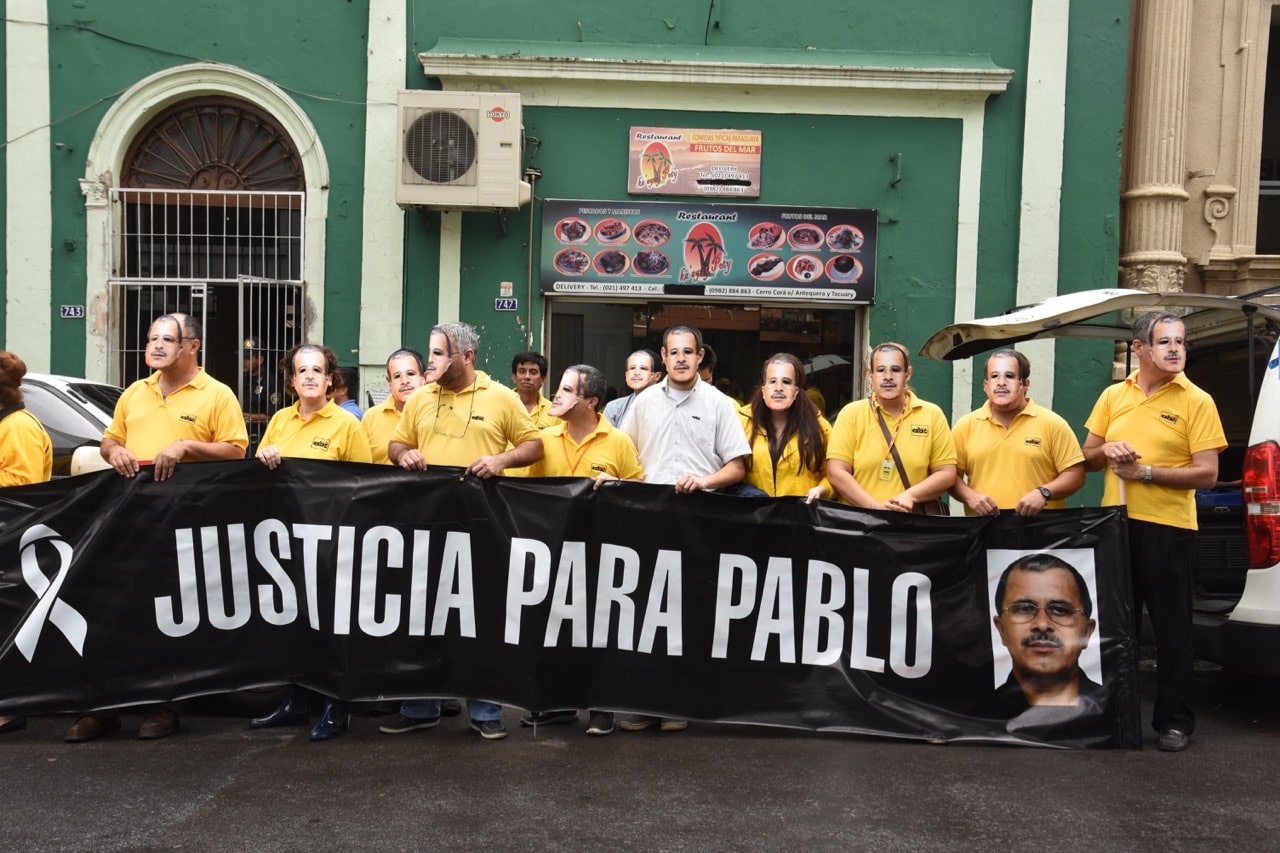A roundup of key free expression news in the Americas, based on IFEX member reports.
October was a busy month. The IFEX-ALC network had to push hard to make its voice heard in the face of threats and cases that could go unpunished within the climate of impunity that reigns in the region.
Paraguay was the centre of attention. On 10 October, Noelia Díaz Esquival, a journalist and secretary general of the Sindicato de Periodistas del Paraguay (Paraguayan Journalists Union, SPP), received a death threat after publicising information about the murder of a Paraguayan woman. SPP is an IFEX member organisation.
Me amenazaron de muerte. Tengo miedo y voy asegurarme de mi seguridad y la de mi familia. Así también NO VOY A PARAR HASTA QUE MIS HIJAS ACCEDAN A LOS MISMOS DERECHOS QUE LOS HOMBRES Y GOCEN DE UNA VIDA LIBRE DE TODO TIPO DE VIOLENCIA.#NiUnaMenos #VivasNosQueremos pic.twitter.com/AGEc26wLk8
— Noelia Diaz Esquivel (@noediazesqui) October 10, 2018
I received a death threat. I am afraid and need to ensure my safety and that of my family. At the same time I WILL NOT STOP UNTIL MY DAUGHTERS ARE AFFORDED THE SAME RIGHTS AS MEN AND ARE ABLE TO ENJOY LIFE FREE OF ANY TYPE OF VIOLENCE. #Notevenoneless #Wewantthemalive
At the IFEX-ALC network, we immediately activated our alert mechanism, issuing a statement expressing our utmost condemnation of the threat, and calling on the government to determine who was behind it and to provide Díaz Esquival with protection.
Subsequently, the fourth anniversary of the assassination of journalist Pablo Medina took place just six days after the threat against Díaz Esquival. Before Medina’s death, impunity was already a problem in the country, with 16 cases of unsolved journalist assassinations at that time. In 2015 IFEX-ALC decided to bring the situation in Paraguay to international attention by way of a fact-finding mission, lobbying at the United Nations and other activities.
It was truly a testament to the power of the network when IFEX-ALC learned in December 2017 that the man behind the 2014 assassination of Pablo Medina had been sentenced to 29 years in prison. This was the first time someone who ordered an attack on a journalist in Paraguay was sentenced in accordance with the crime committed.
Death on the Border
Other examples of the fight against impunity in the region can be observed in Colombia and Ecuador. Six months ago Javier Ortega, Efraín Segarra and Paúl Rivas, members of a journalism crew for the Ecuadoran daily El Comercio, were assassinated in Colombia.
Faced with incomplete and diverging versions from the Ecuadoran and Colombian governments regarding what took place, a group of journalists and organisations began a rigorous investigation into the events surrounding the kidnapping and assassination of the El Comercio personnel.
This work was carried out using the meticulous information verification process of two international organisations, the Organized Crime and Corruption Reporting Project (OCCRP) and Forbidden Stories, together with IFEX members FLIP and Fundamedios.
The result of this collaboration was an excellent report that reveals information never before publicised about the investigation and reaches conclusions that could assist in clarifying the events of this brutal crime. The name of the project is Death on the Border: The slain journalists’ last days.
Heated situations
In Mexico, the ongoing spiral of violence and intimidation continues to threaten the survival of independent and free journalism. On 24 October, journalist Gabriel Soriano Kuri was assassinated by unidentified individuals during an armed confrontation in Acapulco. IFEX member ARTICLE 19 questioned whether this assassination could mark the beginning of a new form of violence perpetrated by drug-trafficking elements against journalists.
Soriano Kuri’s assassination took place at a time when several studies carried out by civil society organisations have exposed the environment of extreme insecurity in which journalists are attempting to work. One report noted that nine of every 10 journalists in Mexico have felt threatened or at risk.
It is worthwhile noting that the #RompeElMiedo (Break the Silence) network documented 185 attacks within the context of the 2018 elections in Mexico, a figure which represents 47.6% of all attacks on the press reported by ARTICLE 19 in the first half of the year. In addition, 63 of the attacks took place specifically on election day, 1 July.
The recent elections in Brazil also led to negative outcomes, with IFEX member ABRAJI documenting more than 130 cases of violence against journalists during the process that resulted in a win for the ultra-right candidate Jair Bolsonaro.
In Brief
Nicaragua: Journalist Carl David Goette-Luciak was subjected to an on-line harassment campaign, then detained by police and finally expelled from the country.
Venezuela: IFEX member IPYS Venezuela has documented 40 restrictions on access to information thus far in 2018.
United States: An investigation has revealed that Facebook is making use of user security information for targeted advertising purposes.
